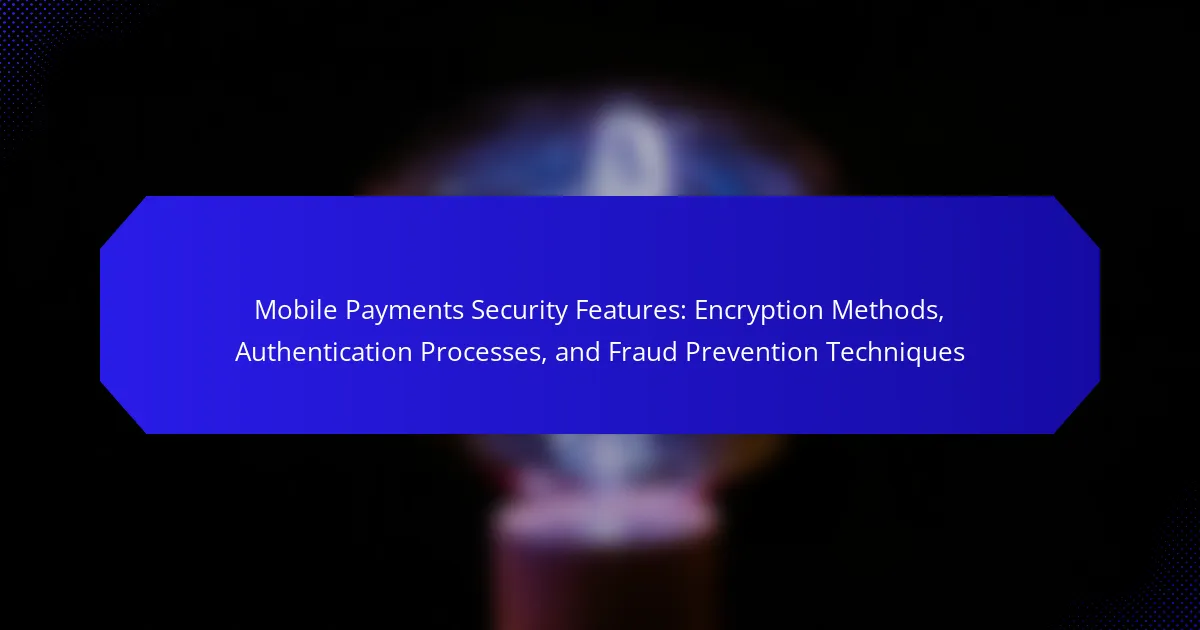Mobile payments security features are essential for protecting sensitive data during transactions. Key components include encryption methods, such as AES and RSA, which render information unreadable to unauthorized users, and authentication processes that verify user identity through biometrics, passwords, or multi-factor authentication. Additionally, fraud prevention techniques, including tokenization and real-time transaction monitoring, help detect and […]
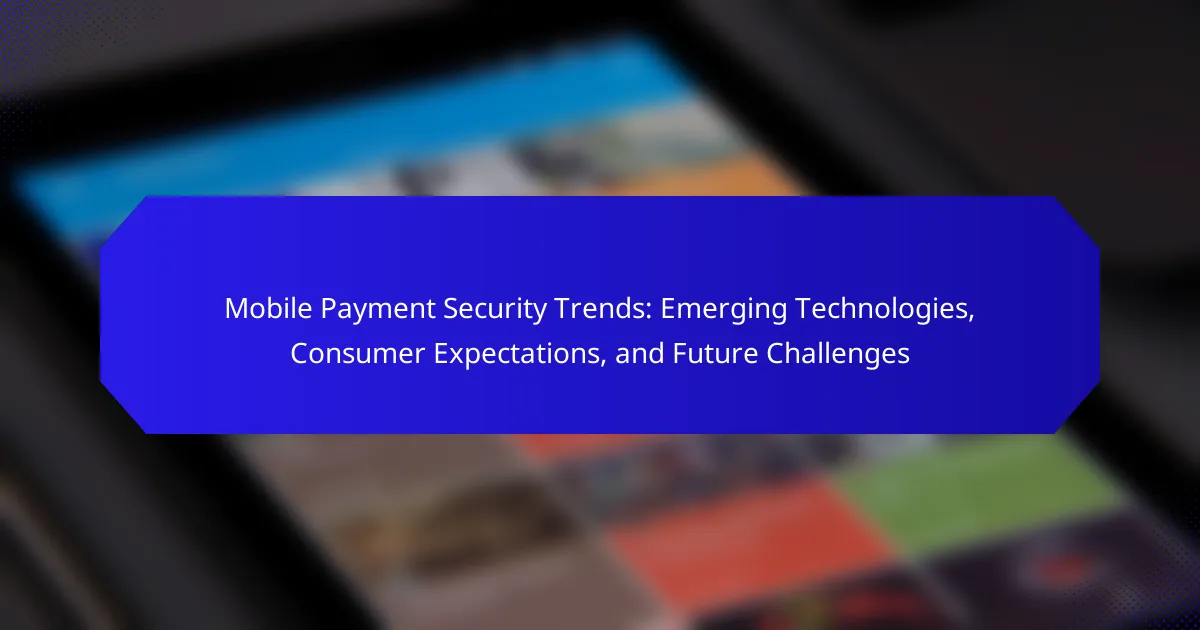
Mobile Payment Security Trends: Emerging Technologies, Consumer Expectations, and Future Challenges
Mobile payment security is increasingly influenced by advanced technologies and evolving consumer expectations. Key trends include enhanced biometric authentication methods, such as fingerprint and facial recognition, which improve user verification. Tokenization techniques replace sensitive payment information with unique identifiers, significantly reducing fraud risk. Artificial intelligence plays a crucial role in real-time fraud detection by analyzing […]
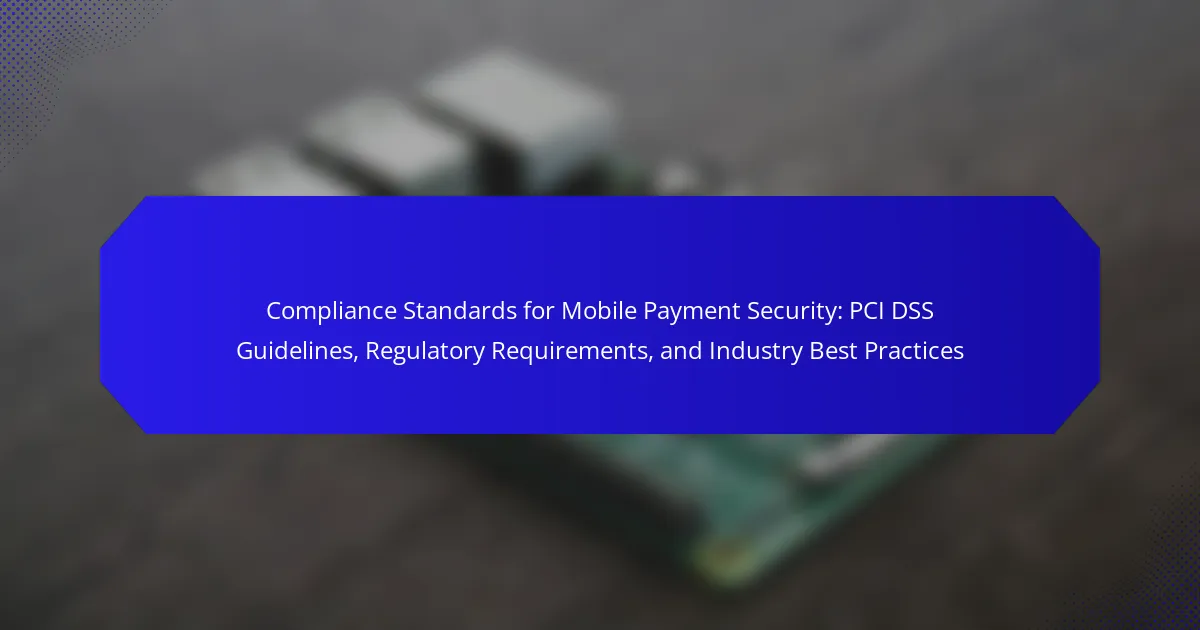
Compliance Standards for Mobile Payment Security: PCI DSS Guidelines, Regulatory Requirements, and Industry Best Practices
Compliance standards for mobile payment security are essential guidelines that ensure safe transactions and protect sensitive cardholder data. The Payment Card Industry Data Security Standard (PCI DSS) serves as a critical framework, mandating security measures such as encryption, access controls, and regular security assessments. Additionally, regulatory requirements like the General Data Protection Regulation (GDPR) influence […]
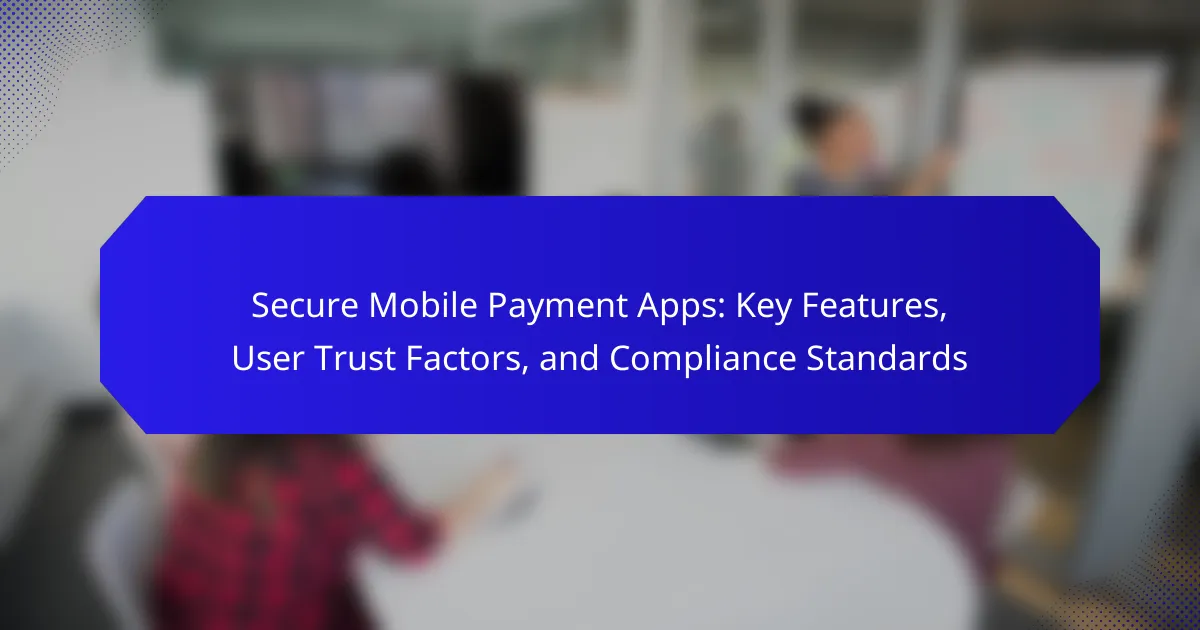
Secure Mobile Payment Apps: Key Features, User Trust Factors, and Compliance Standards
Secure mobile payment apps are applications that enable financial transactions through mobile devices while prioritizing user security. These apps employ advanced security measures such as encryption, tokenization, biometric authentication, and two-factor authentication to safeguard sensitive data. The global mobile payment market is anticipated to reach $12.06 trillion by 2027, indicating a significant increase in the […]
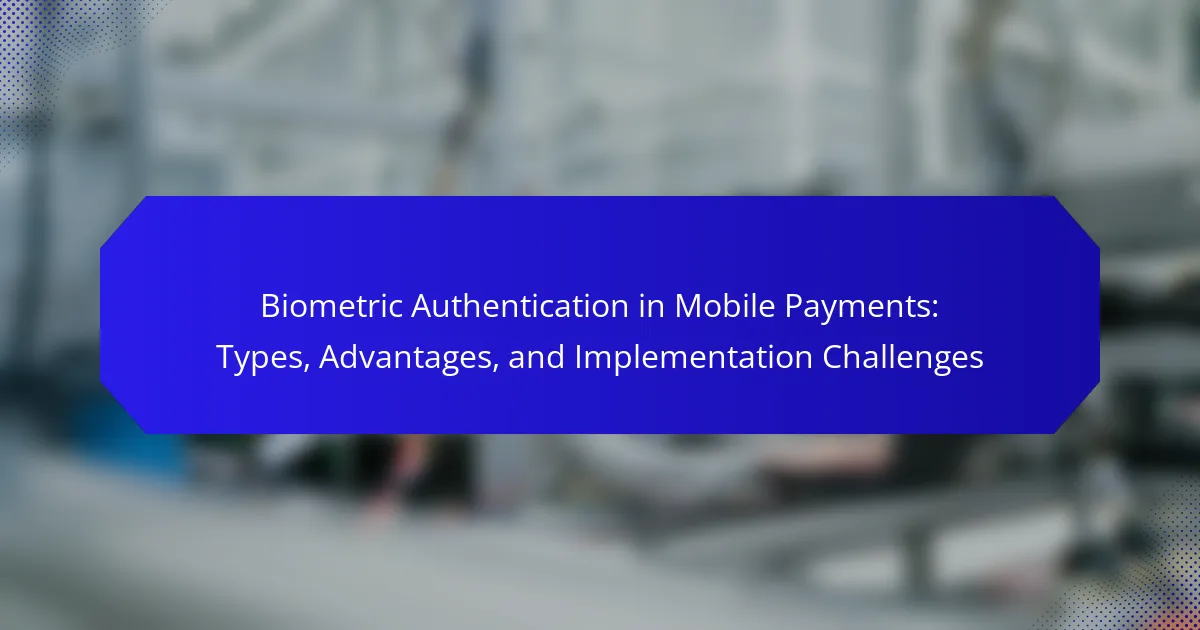
Biometric Authentication in Mobile Payments: Types, Advantages, and Implementation Challenges
Biometric authentication in mobile payments is a security method that utilizes unique biological traits, such as fingerprints, facial recognition, or iris scans, for user verification. This technology significantly enhances security by making it difficult to replicate biometric data, reducing fraud rates in mobile transactions by up to 80%, according to Juniper Research. The article will […]
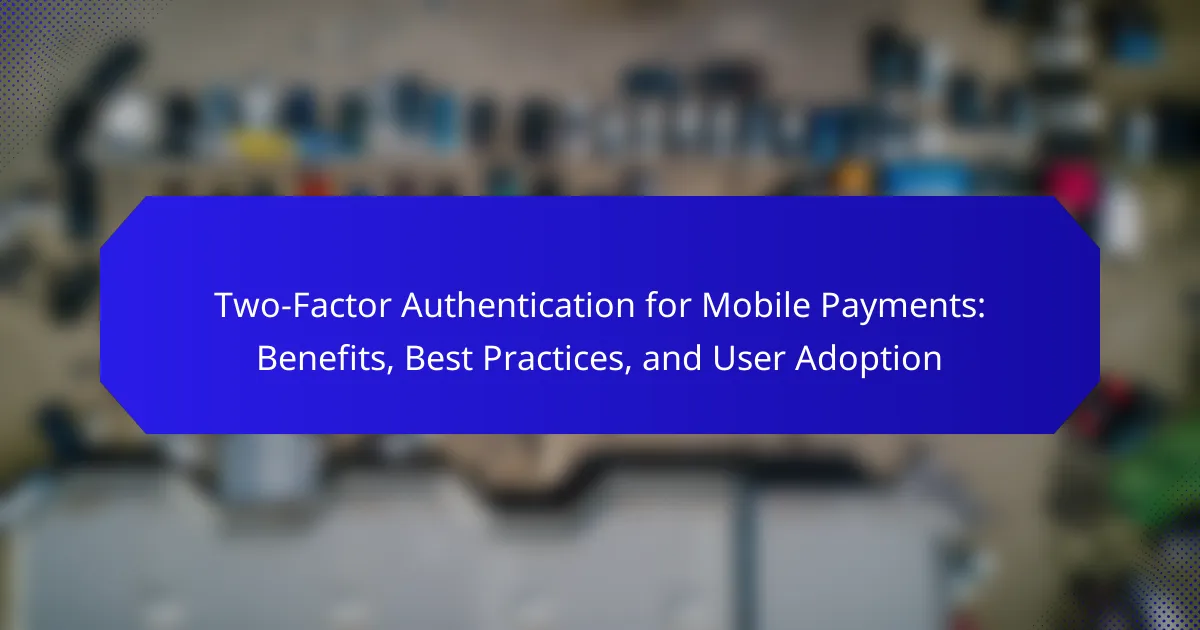
Two-Factor Authentication for Mobile Payments: Benefits, Best Practices, and User Adoption
Two-Factor Authentication (2FA) is a critical security measure for mobile payments that requires users to provide two distinct forms of verification to complete a transaction. This process typically involves a combination of something the user knows, such as a password or PIN, and something the user possesses, like a smartphone or hardware token. The implementation […]
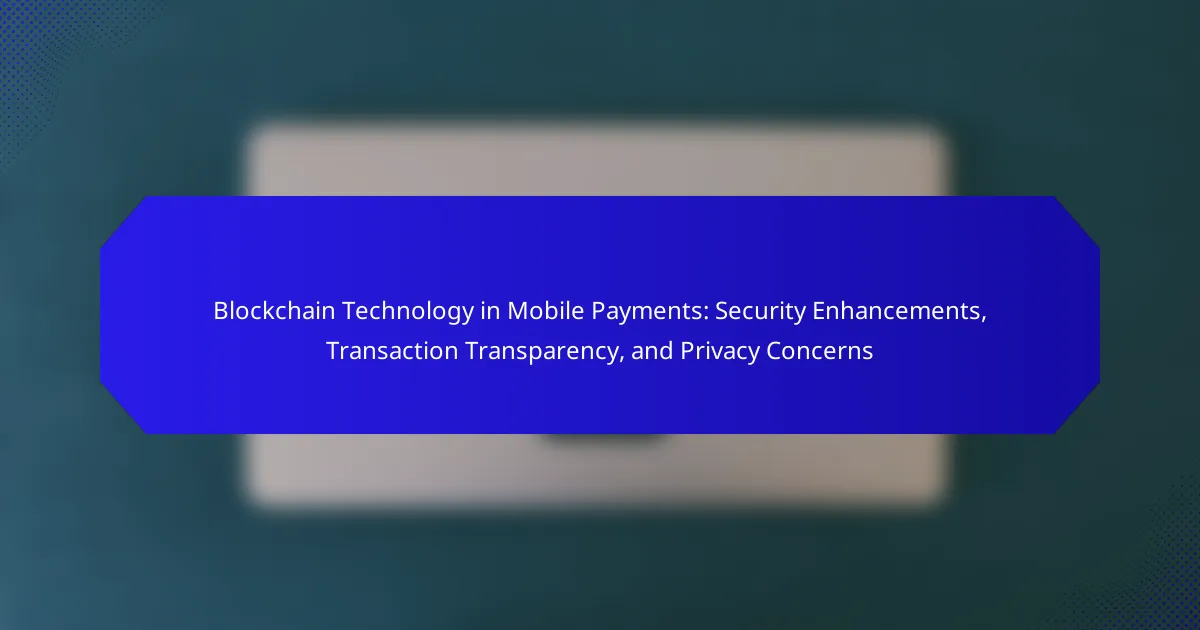
Blockchain Technology in Mobile Payments: Security Enhancements, Transaction Transparency, and Privacy Concerns
Blockchain technology serves as a decentralized digital ledger system that enhances mobile payments by ensuring secure, transparent transactions without intermediaries. Key features of blockchain include immutability, which prevents alteration of transaction data, and encryption, which secures sensitive information during transmission. This technology significantly reduces transaction costs and fraud, with reports indicating potential reductions of up […]
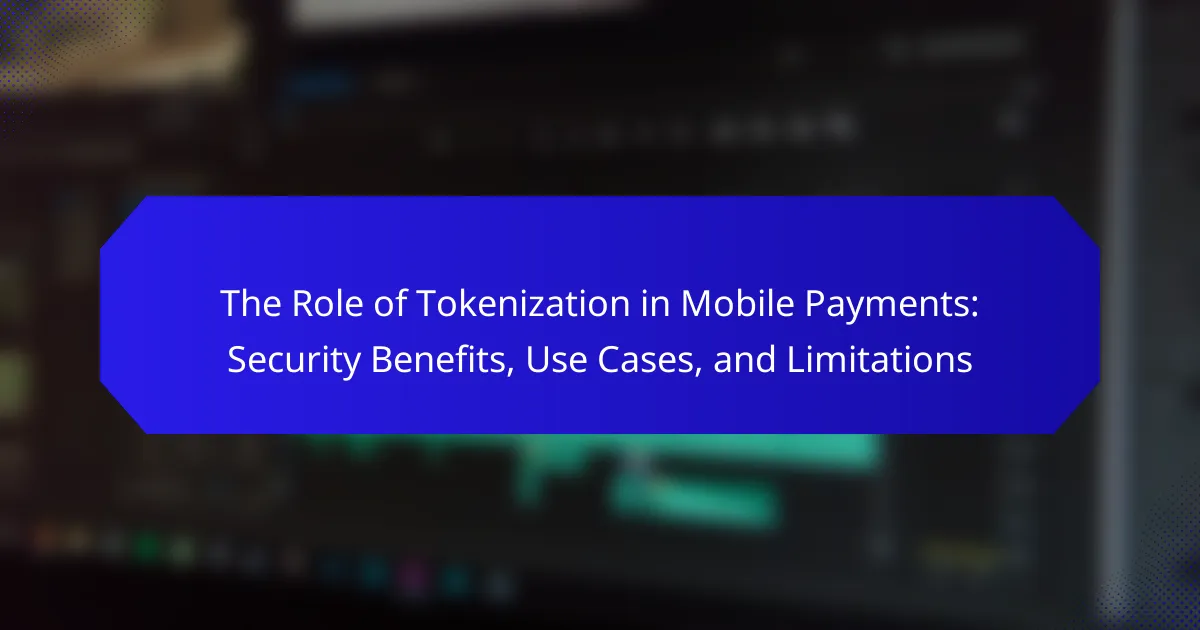
The Role of Tokenization in Mobile Payments: Security Benefits, Use Cases, and Limitations
Tokenization is a security process in mobile payments that replaces sensitive payment information with unique identifiers, or tokens, to protect users’ card details during transactions. This method significantly reduces the risk of data breaches by ensuring that intercepted transaction data remains useless to fraudsters. The article explores the security benefits of tokenization, including its application […]
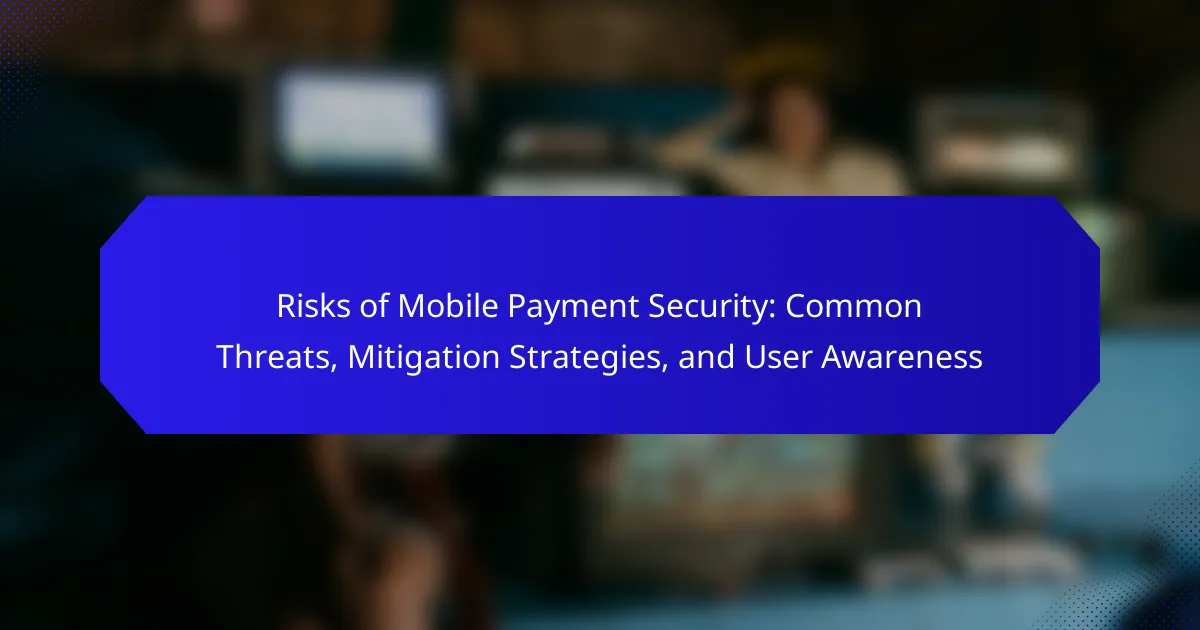
Risks of Mobile Payment Security: Common Threats, Mitigation Strategies, and User Awareness
Mobile payment security encompasses the risks and strategies associated with the use of digital payment systems. Key risks include data breaches, malware attacks, and phishing scams, which can lead to identity theft and financial loss. The article outlines the growing threat landscape, citing a 30% increase in mobile payment fraud complaints in 2022 and projecting […]
